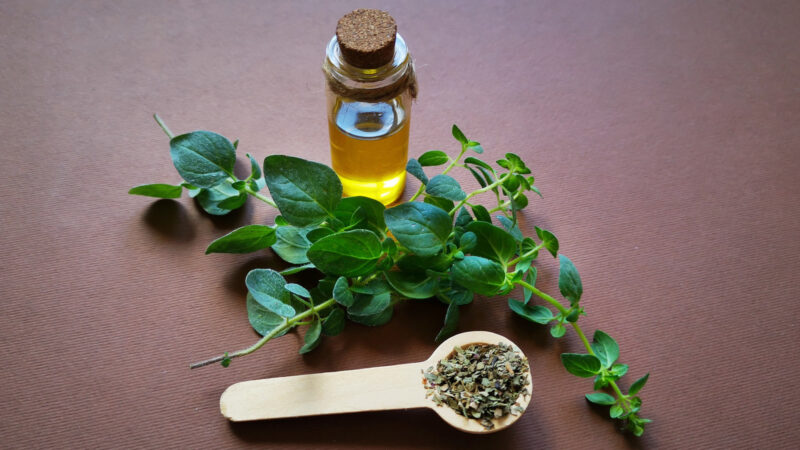wellhealthorganic.com:health-benefits-and-side-effects-of-oil-of-oregano: Oil of oregano, derived from the oregano plant, has gained popularity as a natural antifungal agent. It contains several compounds, including carvacrol and thymol, which exhibit potent antifungal properties. This article explores the benefits and uses of oil of oregano as a natural antifungal agent.
Antifungal Properties:
Oil of oregano possesses strong antifungal properties, making it effective against a variety of fungal infections. The active compounds in oil of oregano have been found to inhibit the growth and reproduction of fungi, including Candida species, Aspergillus, and dermatophytes. These properties make it a promising natural alternative to synthetic antifungal medications.
Also Read: wellhealthorganic.com:10-benefits-of-eating-roasted-gram
Candida Infections:
Candida is a type of yeast that can cause various infections, such as oral thrush and vaginal yeast infections. Oil of oregano has shown promising results in combating Candida overgrowth. Its antifungal properties help to inhibit the growth of Candida and restore the balance of microorganisms in the body.
Skin Infections:
Oil of oregano can be used topically to treat fungal skin infections like athlete’s foot and ringworm. Its antifungal properties help eliminate the fungi responsible for these infections. It can be applied directly to the affected area, either in its pure form or diluted with a carrier oil, such as coconut or olive oil.
Nail Fungus:
Nail fungus, also known as onychomycosis, is a common fungal infection that affects the nails. Oil of oregano can be used as a natural remedy for nail fungus. Its antifungal properties penetrate the nail bed, targeting the fungi responsible for the infection. Applying diluted oil of oregano directly to the affected nails can help inhibit the growth of the fungus and promote healthy nail growth.
Also Read: wellhealthorganic.com:10-benefits-of-eating-roasted-gram
Oral Health:
Oil of oregano can also be beneficial for oral health. It can help combat oral infections caused by fungi, such as oral thrush. Gargling with a diluted solution of oil of oregano can help reduce the fungal overgrowth in the mouth and alleviate symptoms associated with oral infections.
Systemic Fungal Infections:
In addition to its topical uses, oil of oregano may also have potential in the treatment of systemic fungal infections. Research suggests that its antifungal properties could be effective against invasive fungal infections that affect internal organs. However, further studies are needed to establish its efficacy and safety for such uses.
Precautions and Side Effects:
While oil of oregano is generally considered safe for topical use, it is important to exercise caution and follow proper dilution guidelines. Undiluted oil of oregano may cause skin irritation and should be avoided. It is also not recommended for use during pregnancy or by individuals with allergies to oregano or other plants in the Lamiaceae family.
Also Read: wellhealthorganic.com:10-benefits-of-eating-roasted-gram
Conclusion:
Oil of oregano is a natural antifungal agent that offers several benefits and uses. Its antifungal properties make it effective against various fungal infections, including Candida overgrowth, skin infections, and nail fungus. Additionally, it may have potential for the treatment of systemic fungal infections. However, it is important to use oil of oregano cautiously and follow proper guidelines to ensure safety and effectiveness. Consulting with a healthcare professional is recommended before using oil of oregano for any specific condition.








